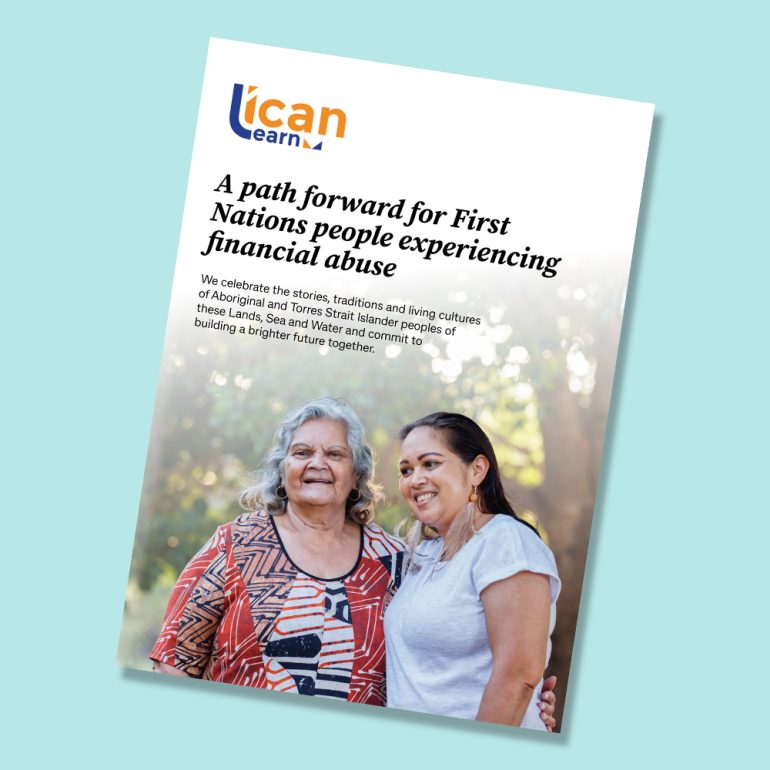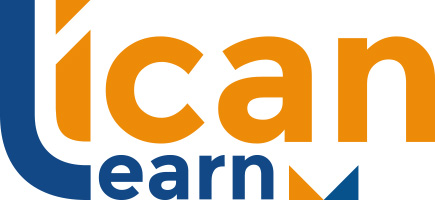
A groundbreaking report to be launched at the Financial Counselling Australia (FCA) Annual Conference next week has revealed the urgent need for culturally informed responses to financial abuse affecting First Nations peoples. “A path forward for First Nations people experiencing financial abuse“, produced by ICAN Learn with support from the Commonwealth Bank’s Next Chapter program, offers the first frameworks specifically designed to recognise, respond to, and prevent financial abuse in Aboriginal and Torres Strait Islander communities.
The report shines a spotlight on the unique cultural contexts of financial abuse, including unreciprocated demand sharing; a practice often misunderstood and unacknowledged in mainstream definitions of financial abuse.
Tracey McCurdy, Executive Officer of ICAN Learn and proud Guilidjan woman said the report gives voice to experiences long overlooked.
“For too long, financial abuse in our communities has been hidden behind a veil of cultural obligation. This report is about naming the abuse, empowering our people to recognise it, and ensuring practitioners have the right tools to respond in a culturally safe way.”
Angela MacMillan, Group Customer Advocate, Commonwealth Bank of Australia said: “Financial abuse can affect anyone. Through our Elevate Reconciliation Action Plan, we are committed to helping end financial abuse in First Nations communities and are proud to have partnered with ICAN Learn to develop this framework. The insights in this framework highlight the importance of working with First Nations-led organisations to increase our awareness of the cultural context of financial abuse in Aboriginal and Torres Strait Islander communities and apply these learnings to develop targeted and informed responses.”
Carmen Daniels, ICAN’s Research Manager and Cree Metis woman from Saddle Lake and Beaver Lake Cree Nations, Canada, emphasised key areas for consideration when building systems-level responses that address First Nations financial abuse:
“ICAN’s literature review and focus groups identified that systems-level responses to address First Nations financial abuse should consider how complexities of First Nations’ socio-economic sharing systems are managed, dynamic changing cultural and economic landscapes, where silence and ambiguity may reinforce economic abuse, and identify power differentials in levels of economic abuse.”
Lynda Edwards, Financial Counselling Australia’s National Coordinator for Financial Capability and proud Wangkumara/Barkindji woman, highlighted:
“Sharing is part of our survival, part of our cultural identity. But when sharing becomes unreciprocated and coercive, it’s not culture; it’s abuse. It was never our way to put family in harm’s way. We need to educate, empower, and advocate for change from within our communities and across the financial services system.”
The report calls for greater investment in community-led education, the development of culturally appropriate screening tools, and structural reforms to financial services and government programs to better support First Nations individuals experiencing financial abuse.
The First Nations Financial Abuse Report is a rallying call for policymakers, service providers, and communities alike to work together to break cycles of abuse and strengthen financial independence, wellbeing, and cultural resilience.
Download the full report: https://ican.org.au/wp-content/uploads/2025/03/First-Nations-Financial-Abuse-Report.pdf


